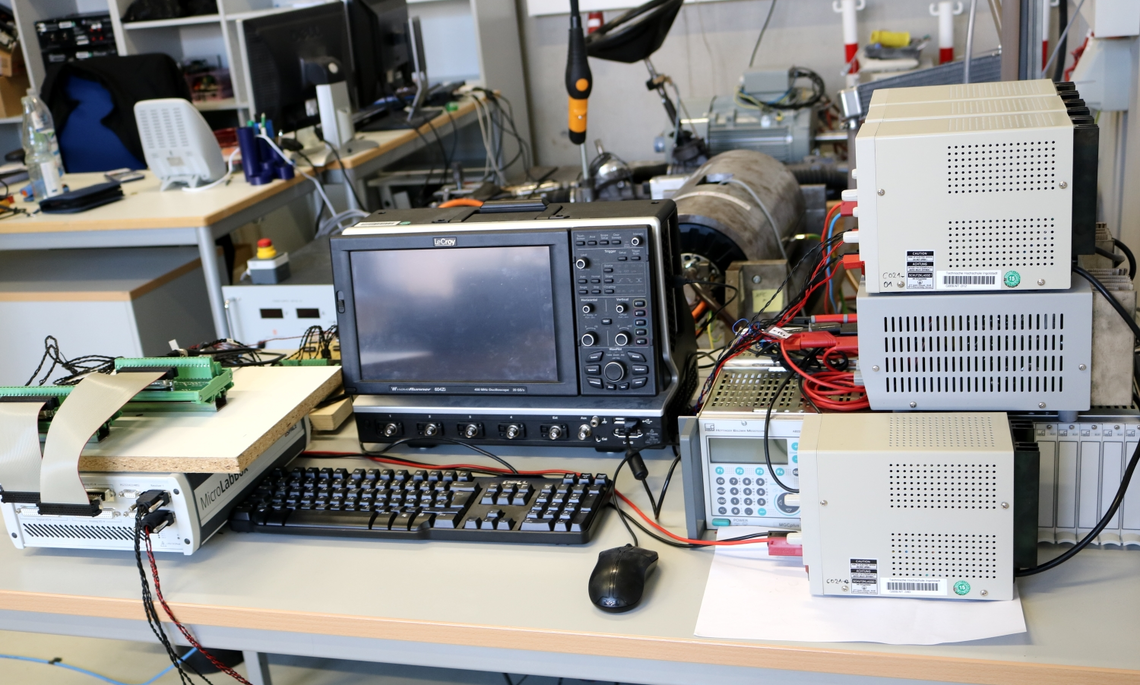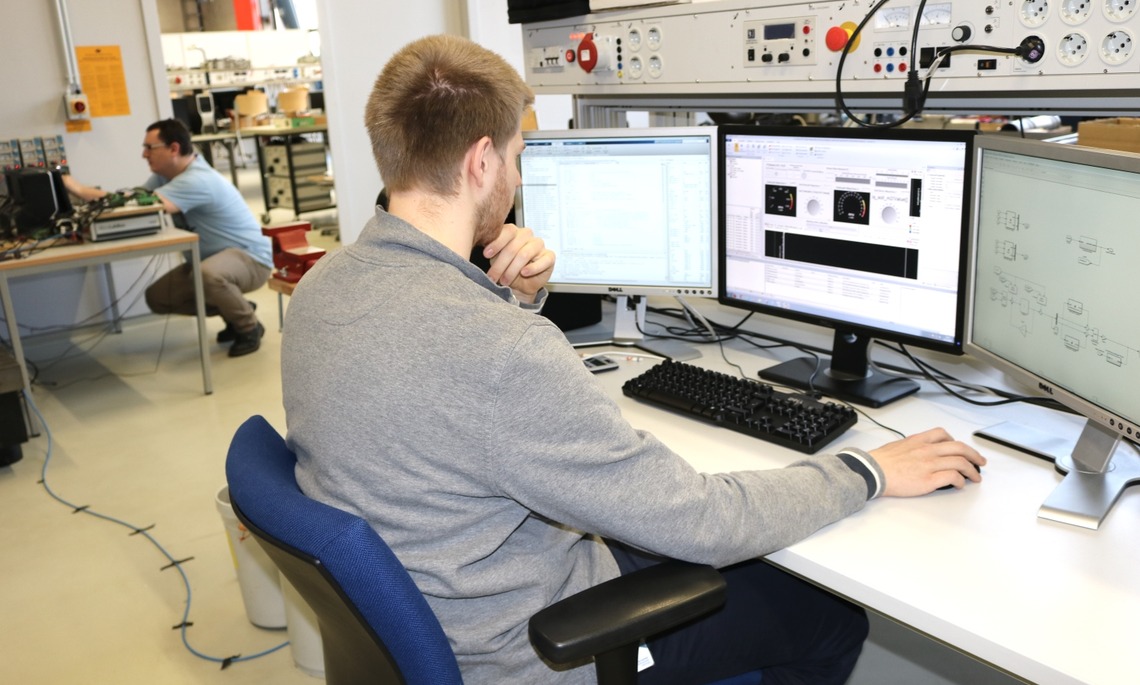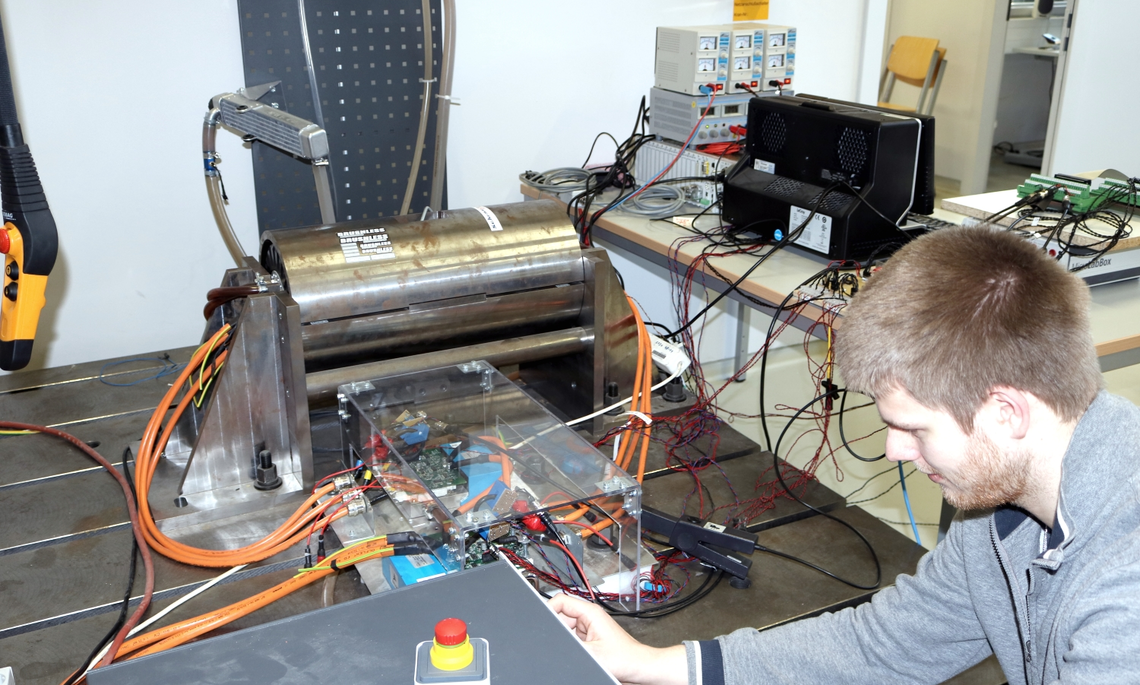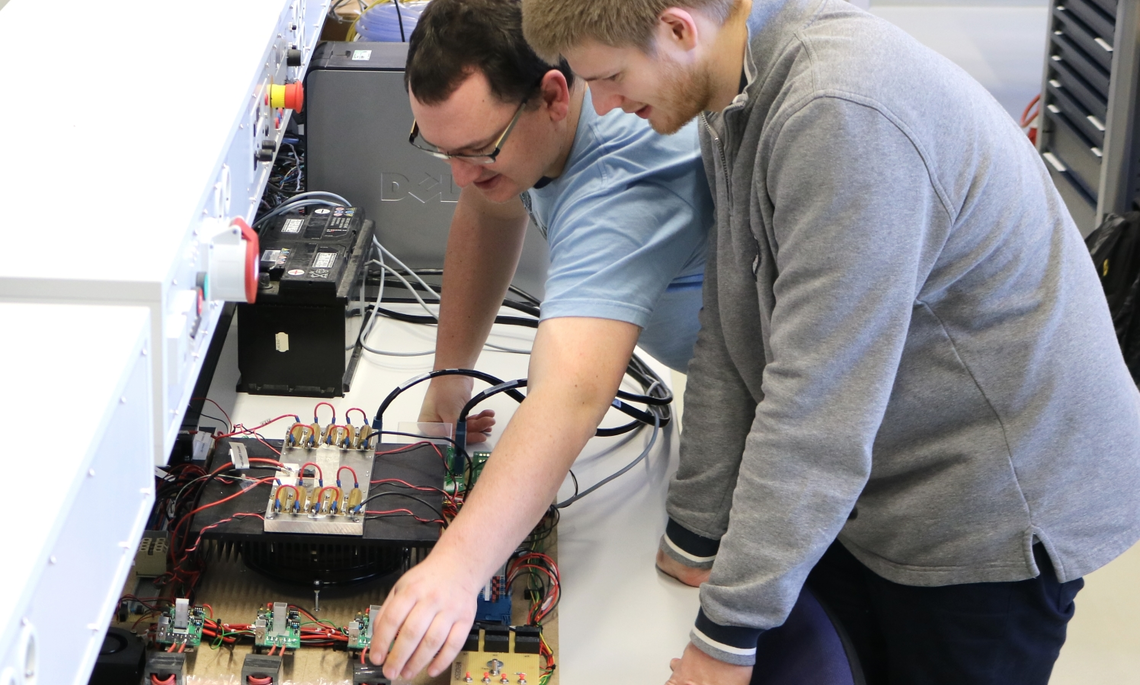The lab deals with fundamental and current questions concerning the generation, distribution and conversion of electrical energy. Modern power electronics is a focal point of this laboratory. The laboratory is located in the new G-building and is close to the Laboratory for Electrical Machines and Drives, where questions concerning the design and operation of electrical machines and their control are dealt with.
Laboratory for electrical power generation and conversion (G009)

Goals and idea
Power electronics is necessary for the control of controlled electrical machines so there is a close connection between these two topics. In the Laboratory for Electrical Power Generation and Conversion, study-related internships and projects take place and application-oriented research projects are carried out in cooperation with industrial partners, research institutes and partner universities.
- Analysis of power electronic converters
- Analysis of electrical power networks
- Optimization of control engineering for converters and multi-converter systems
- Implementation of research projects
Laboratory equipment and activities
Equipment and function
The following measuring instruments and test benches are available in the laboratory for electrical power generation and conversion:
- Precision measuring instruments for current, voltage and power measurement
- High power DC and AC power supplies
- "Hardware-in-the-loop" systems for the control and regulation of power electronic converters
- Load resistors
- Temperature measuring systems
- Simulation software for circuit simulation and control loop simulation
Courses
Internships accompanying the lectures:
- Electrical Drives and Power Electronics in the Bachelor degree program Mechatronics
- Power electronics in the bachelor's degree programmes Electrical Engineering and Information Technology as well as Electrical Engineering and Electromobility
- Power Electronic Systems and Power Networks in the Master's Programme in Electrical
- Engineering of Mobile Systems
Further:
- Lecture-accompanying internships for students of bachelor and master courses in the field of power electronics and electrical energy networks
- Lecture-accompanying practical courses for students of master courses in the field of control of power electronic converters
- Implementation of projects accompanying the studies
- Bachelor and Master Theses
Research
- Optimization of power electronic converters for motor vehicles
- Optimisation of electrical energy networks in motor vehicles
- Inductive charging of the traction battery in electric and hybrid vehicles
- Switching behaviour of SiC and GaN semiconductors







![[Translate to English:] Logo Akkreditierungsrat: Systemakkreditiert](/fileadmin/_processed_/2/8/csm_AR-Siegel_Systemakkreditierung_bc4ea3377d.webp)








![[Translate to English:] Logo IHK Ausbildungsbetrieb 2023](/fileadmin/_processed_/6/0/csm_IHK_Ausbildungsbetrieb_digital_2023_6850f47537.webp)


